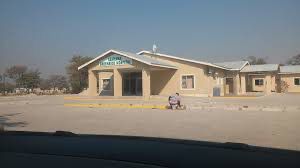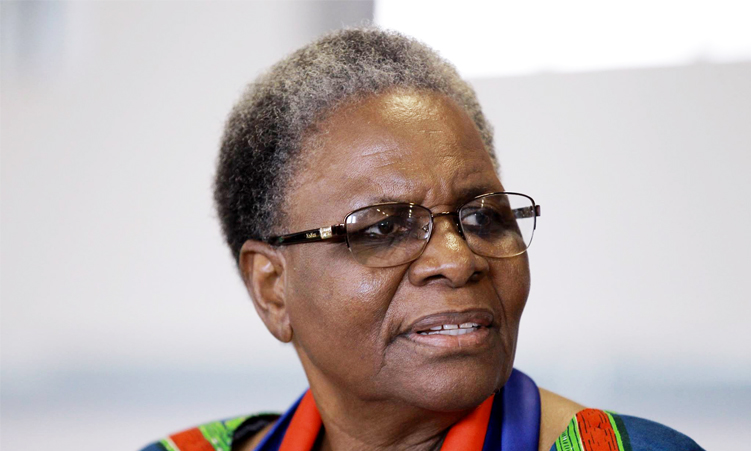DOUALA, Cameroon – When a brand-new Kenya Airways Boeing 737 crashed into a jungle swamp this month seconds after take off from Douala airport killing all 114 people aboard, authorities mistakenly thought it had plunged 160 kilometres to the south.
Two days passed before they found out from local villagers that the wreckage was just 5,4 kilometres from the terminal building, almost within view of the airport’s southern boundary. The absence of radar at Douala International Airport, the initial lack of concern at the airliner’s failure to report to air traffic control after take off, and the seemingly lackadaisical search effort renewed apprehensions about the safety of African air travel.Now, Africa has a new weapon in its struggle to reverse statistics that have consistently placed it at the top of the world’s accident lists: On June 28, African governments inaugurate a continentwide air safety agency modeled on the EU’s Aviation Safety Agency and the US Federal Aviation Agency.”Until now air safety was left to individual countries, but from now on the African continent will speak with one voice,” said Harry Eggerschwiler, chief of operations for the African Civil Aviation Authority, or AFRO-CAA.”The political will is there to reverse the trends,” he said in a telephone interview from Windhoek, Namibia, where the inauguration ceremony will take place.In the 1960s and 70s, outgoing colonial powers such as France and Britain established national aviation authorities to regulate commercial carriers.But lack of qualified staff and little or no government oversight caused local airlines to quickly allow standards to slip.”In Africa it’s not considered particularly unusual to reach a scheduled destination at night and find the airport closed, the runway lights off and air traffic control non-functional,” said David Ryerson, a South African pilot who flew for the now-defunct Air Afrique.”We would usually just circle awhile and then head off to an alternate airport.”The industry deteriorated further with deregulation in some countries, creating a large number of new operators that frequently fly old Soviet-built aircraft leased from Ukraine, Moldova or other former Soviet republics in Central Asia.The broader problems of extreme weather, poverty, war and corruption have also had a damaging impact on Africa’s air industry, contributing to numerous crashes over the past decade.According to accident statistics compiled by the International Air Transport Association, the number of major accidents per million takeoffs in Africa amounted to 4,31 in 2006, compared to a worldwide average of only 0,65.The safety record is so dismal that the European Union now bans 74 African airlines – from a total international blacklist of 91 – from entering its air space.Last year the African Union, the continent’s political umbrella organisation, established the AFRO-CAA as a means to stem “the alarming rate of accidents, hull losses and fatalities in the African Continent when compared to statistics of other areas of the world.”The new organisation will have a total of about 80-100 staff at headquarters and another 25 in its 5 regional offices.It’s principal tasks will be to improve overall safety standards by: * Developing uniform technical standards – known as Civil Aviation Requirements – for use in flight operations and in aircraft maintenance throughout the continent; * Harmonising the licensing of pilots and issuing certificates of airworthiness for airliners, which would replace widely differing national regulations; * Providing experts to assist national authorities in implementing flight safety procedures.The new agency will have regional headquarters in Ethiopia, Cameroon, Libya, Nigeria and South Africa.America’s FAA has already offered training free of charge for air operations officers and accident investigators, Eggerschwiler said.”This will be a big step to improve safety in Africa,” he said.”When you go to international safety meetings you always hear ‘Africa, Africa’.Well, we are now doing something about it.”The European Union too has offered assistance to the new African authority once it is established.Experts say the planned reforms will improve and standardise procedures, and will likely reduce the number of accidents caused by small, non-mainstream airlines – many of them cargo carriers – that are the chief source of crashes on the continent.”It’s very encouraging, this is the type of thing we always try to get people to do,” said William Voss, president of the Flight Safety Foundation, a US-based non-profit organisation.”Anything that regionalises safety oversight and control in aviation tends to be extremely effective,” he said in a telephone interview from Alexandria, Virginia.Nampa-APThe absence of radar at Douala International Airport, the initial lack of concern at the airliner’s failure to report to air traffic control after take off, and the seemingly lackadaisical search effort renewed apprehensions about the safety of African air travel.Now, Africa has a new weapon in its struggle to reverse statistics that have consistently placed it at the top of the world’s accident lists: On June 28, African governments inaugurate a continentwide air safety agency modeled on the EU’s Aviation Safety Agency and the US Federal Aviation Agency.”Until now air safety was left to individual countries, but from now on the African continent will speak with one voice,” said Harry Eggerschwiler, chief of operations for the African Civil Aviation Authority, or AFRO-CAA.”The political will is there to reverse the trends,” he said in a telephone interview from Windhoek, Namibia, where the inauguration ceremony will take place.In the 1960s and 70s, outgoing colonial powers such as France and Britain established national aviation authorities to regulate commercial carriers.But lack of qualified staff and little or no government oversight caused local airlines to quickly allow standards to slip.”In Africa it’s not considered particularly unusual to reach a scheduled destination at night and find the airport closed, the runway lights off and air traffic control non-functional,” said David Ryerson, a South African pilot who flew for the now-defunct Air Afrique.”We would usually just circle awhile and then head off to an alternate airport.”The industry deteriorated further with deregulation in some countries, creating a large number of new operators that frequently fly old Soviet-built aircraft leased from Ukraine, Moldova or other former Soviet republics in Central Asia.The broader problems of extreme weather, poverty, war and corruption have also had a damaging impact on Africa’s air industry, contributing to numerous crashes over the past decade.According to accident statistics compiled by the International Air Transport Association, the number of major accidents per million takeoffs in Africa amounted to 4,31 in 2006, compared to a worldwide average of only 0,65.The safety record is so dismal that the European Union now bans 74 African airlines – from a total international blacklist of 91 – from entering its air space.Last year the African Union, the continent’s political umbrella organisation, established the AFRO-CAA as a means to stem “the alarming rate of accidents, hull losses and fatalities in the African Continent when compared to statistics of other areas of the world.”The new organisation will have a total of about 80-100 staff at headquarters and another 25 in its 5 regional offices.It’s principal tasks will be to improve overall safety standards by: * Developing uniform technical standards – known as Civil Aviation Requirements – for use in flight operations and in aircraft maintenance throughout the continent; * Harmonising the licensing of pilots and issuing certificates of airworthiness for airliners, which would replace widely differing national regulations; * Providing experts to assist national authorities in implementing flight safety procedures.The new agency will have regional headquarters in Ethiopia, Cameroon, Libya, Nigeria and South Africa.America’s FAA has already offered training free of charge for air operations officers and accident investigators, Eggerschwiler said.”This will be a big step to improve safety in Africa,” he said.”When you go to international safety meetings you always hear ‘Africa, Africa’.Well, we are now doing something about it.”The European Union too has offered assistance to the new African authority once it is established.Experts say the planned reforms will improve and standardise procedures, and will likely reduce the number of accidents caused by small, non-mainstream airlines – many of them cargo carriers – that are the chief source of crashes on the continent.”It’s very encouraging, this is the type of thing we always try to get people to do,” said William Voss, president of the Flight Safety Foundation, a US-based non-profit organisation.”Anything that regionalises safety oversight and control in aviation tends to be extremely effective,” he said in a telephone interview from Alexandria, Virginia.Nampa-AP
Stay informed with The Namibian – your source for credible journalism. Get in-depth reporting and opinions for
only N$85 a month. Invest in journalism, invest in democracy –
Subscribe Now!






